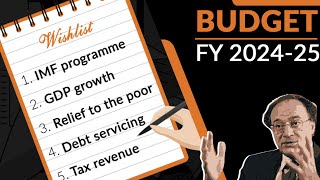A huge scandal that rocked Britain's cosy financial establishment long before most people had even heard of Enron or Parmalat returns to haunt the Bank of England this week as a marathon legal battle looms.
The central bank will begin defending itself in London's high court on Tuesday for the first time in its 300-year history against a lawsuit launched by the liquidators of the failed Bank of Credit and Commerce International (BCCI).
No one has ever successfully sued the Bank of England, but that has not stopped liquidators Deloitte and Touche, who accuse central bank officials of turning a blind eye to the misdeeds at BCCI.
The Bank of England denies the allegations.
The case is the culmination of a decade of efforts by Deloitte to win compensation for BCCI's 6,000 British depositors.
Some lost their life savings when the bank collapsed in 1991 with debts of 10 billion dollars (7.8 billion euros) in what Britain's Serious Fraud Office (SFO) described as "the biggest fraud in banking history."
The Bank of England was Britain's financial regulator at the time.
At stake is more than just money: the lawsuit, which could drag on for a year or more, has put the reputation of the "Old Lady" of Threadneedle Street on the line.
Even more explosive revelations could potentially seep out about the role of the British authorities.
Among the many whispers about BCCI, which was set up in the 1970s by a group of high-ranking Pakistanis including its head, Agha Hasan Abedi, is that it was used by Britain's security services to pay sources and operatives around the world.
The British media is licking its lips at the prospect of seeing the Bank of England call to the stand past and present luminaries including Sir Edward George, the central bank's governor until last June.
The liquidators do not plan to summon any witnesses. Instead they are relying on cross-examination and reams of the Bank of England's internal documents.
In one document, cited by Deloitte, the Bank of England's then head of banking supervision, Peter Cooke, in 1978 described Abedi as "the living personification of Uriah Heep", referring to the unscrupulous clerk in Charles Dickens's novel David Copperfield.
But suing the central bank is no easy task, mainly because it enjoys immunity for all claims for negligence.
The liquidators' lawyers must therefore show that the central bank is guilty of "misfeasance", meaning that it knew it was acting illegally.
The Bank of England refused to comment officially on the case, but is understood to be confident it will be cleared of any dishonesty.
At the heart of the liquidators' case is a charge that the Bank of England was aware that BCCI's main place of business was London - giving it a duty to regulate the bank - even though BCCI was officially based in Luxembourg.
They argue it was no secret that BCCI had little more than a two-strong team and a brass plaque in Luxembourg, while in London it had 1,000 employees, a huge office just around the corner from the Bank of England and 49 British branches.
BCCI collapsed after making a number of big, risky loans.
It secretly channelled many millions of dollars into Gulf Group, a Geneva-based shipping giant, even though the senior management of both companies knew that Gulf Group was insolvent, according to the Serious Fraud Office.
Gulf Group head Abbas Gokal and his fellow conspirators falsified documents on a vast scale and engineered an intricate money laundering operation, which, along with other wrong-doings, precipitated the collapse of BCCI.
Gokal was later sentenced to 14 years' imprisonment in May 1997 by a British court. Six others received lesser sentences. Abedi retired to Pakistan, which refused to extradite him. He died in 1995.
BR100
7,977
Increased By
398.8 (5.26%)
BR30
25,602
Increased By
1383.8 (5.71%)
KSE100
76,208
Increased By
3410.7 (4.69%)
KSE30
24,438
Increased By
1225 (5.28%)




















Comments
Comments are closed.